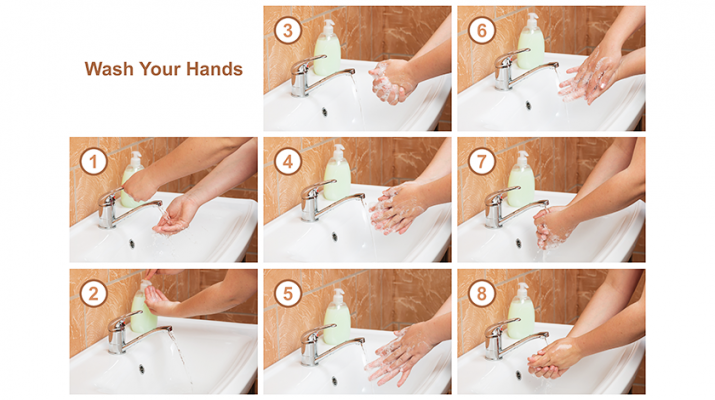‘Hand washing can be a game changer to prevent common respiratory viruses,’ says Erie County Health Commissioner Gale Burstein
By Deborah Jeanne Sergeant
The best way to reduce your risk of catching a cold or influenza doesn’t cost a thing and is something you already know how to do: hand washing.
“It can make a huge difference,” said physician Gale Burstein, commissioner of the Erie County Department of Health in Buffalo. “Most people become ill through first exposure of viruses and bacteria from their hands. Washing their hands is a great way to prevent contact with bacteria or viruses in the area.”
Unfortunately, people don’t do it as often as they should, according to Burstein. Viruses aren’t just spread when a sick person sneezes. She said that many viruses survive on surfaces such as tables, door knobs and utensils for more than 24 hours. In places where many people touch these surfaces, they’re likely crawling with bacteria that can make others sick.
“Hand washing can be a game changer to prevent common respiratory viruses,” Burstein said. “Wash as often as possible, especially before eating and drinking because you’ll know you’ll come in contact with your face and possibly infect yourself.”
Since most people pick up a cold or case of the flu by transferring the germs from their hands to their eyes, nose or mouth, it’s important to avoid touching the face while in public.
Burstein suggests washing the hands after coming home and before coming in contact with a vulnerable person such as a baby or elderly person.
She said that proper hand washing means using warm water and soap, vigorous rubbing and scrubbing the fronts and backs of the hands, between the fingers and under the fingernails. It should take about 20 seconds.
She covers the handle with a dry paper towel or her jacket or shirt to avoid contaminating her hands by touching the handle.
Oxana Khinkis, a registered nurse who works as infection preventionist at VA Medical Center in Buffalo, said hand sanitizer can also help prevent spread of communicable illnesses.
“An alcohol-based hand sanitizer is the preferred method for cleaning your hands when they are not visibly dirty because it is more effective at killing potentially deadly germs on hands than soap, requires less time, is more accessible than hand washing sinks, produces reduced bacterial counts on hands and improves skin condition with less irritation and dryness than soap and water,” Khinkis said.
She recommends products with 60 to 95 percent alcohol as most effective.
But she added that hand sanitizer is “not appropriate for use when hands are visibly dirty or contaminated with proteinaceous materials.”
So if you’re cutting up chicken, lather up and wash afterwards.
Living in a germ-free bubble isn’t advisable — or possible. Balancing cleanliness with sensibility, such as avoiding people known to be sick and staying home when sick, can help reduce the spread of illness.
In addition, managing stress, eating a balanced diet and exercising all help support overall health, including a healthy immune system, which can also help the body fight off colds and flu.

